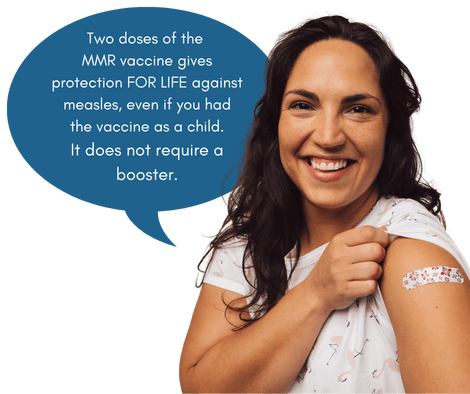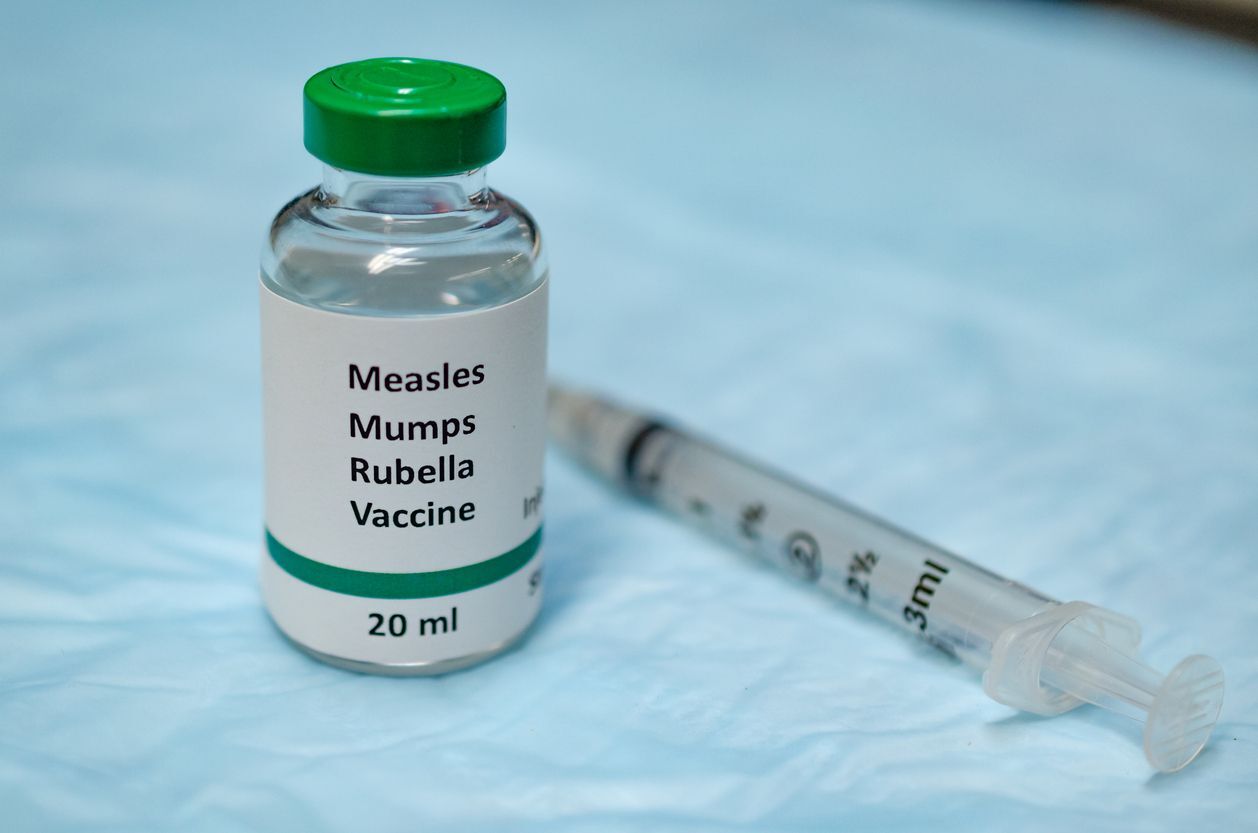Measles is very contagious and can be serious. An unvaccinated person can get measles when traveling abroad or even in the U.S. Two doses of MMR vaccine provide the best protection against measles.
Signs and Symptoms of Measles
Measles isn’t just a little rash. Measles can be dangerous, especially for babies and young children. Measles typically begins with
- High fever (may spike to more than 104°),
- Cough,
- Runny nose (coryza), and
- Red, watery eyes (conjunctivitis).
Tiny white spots (Koplik spots) may appear inside the mouth two to three days after symptoms begin.
Three to five days after symptoms begin, a rash breaks out. It usually begins as flat red spots that appear on the face at the hairline and spread downward to the neck, trunk, arms, legs, and feet.
- Small raised bumps may also appear on top of the flat red spots.
- The spots may become joined together as they spread from the head to the rest of the body.
- When the rash appears, a person’s fever may spike to more than 104° Fahrenheit.
Measles is one of the most contagious diseases.
The measles virus spreads when an infected person breathes, coughs, or sneezes. The virus stays in the air, and on surfaces, for up to two hours after the infected person has left the room.
It takes from 7- 21 days after exposure to develop symptoms. Infected people can spread the disease from 4 days before the rash starts and up to 4 days after.
Measles remains a common disease in many parts of the world, including some countries in Europe, Asia, the Pacific, and Africa. Measles in the U.S. spreads when it reaches a community or group that is unvaccinated. Travelers with the disease can bring the disease into the U.S.
The MMR Vaccine: What You Need To Know
The majority of people who have gotten measles in the most recent U.S. outbreaks were unvaccinated. The recommendations for the MMR (Mumps, Measles, Rubella) vaccine have not changed.
Who Should Get the MMR Vaccine and When?

Children need 2 doses of the MMR vaccine.
- First dose is at 12 -15 months, and the second dose at 4 - 6 years.
- Some infants younger than 12 months should get a dose if they are travelling out of the country.
Adults also need the MMR vaccine.
Generally, anyone born AFTER 1956 should get at least one dose of the MMR vaccine unless they can show that they have been vaccinated, OR have had all three diseases.
Benefits of the MMR Vaccine
Getting the MMR vaccine is much safer than getting measles. The MMR vaccine:
- Saves lives.
- Prevents hospitalizations.
- Protects infants and young children. Measles can cause serious health complications, especially in children younger than 5 years of age. There is no way to tell in advance the severity of the symptoms a child will experience.
- Keeps others safe, especially those at high risk, including babies younger than 1 year; pregnant women who have not had the vaccine; people with weakened immune systems, like those with AIDS, cancer, malnutrition, and others.
If you think you or your child needs the MMR vaccination, please call East Central District Health Department at (402) 563-9656 to schedule an appointment. Or contact your health care provider.

